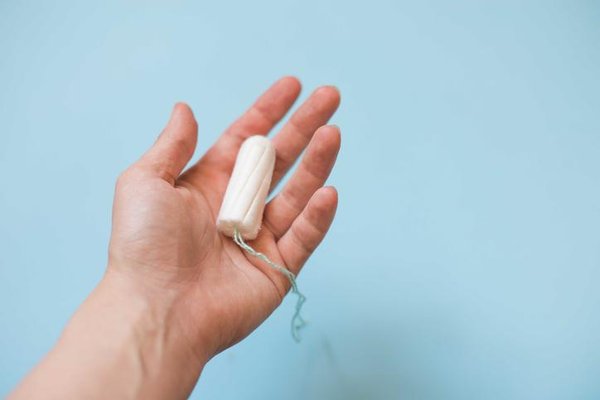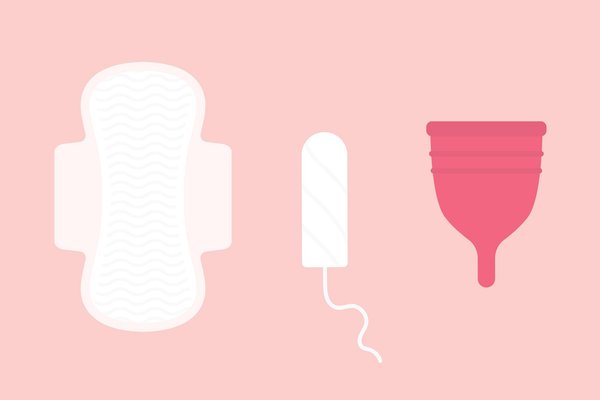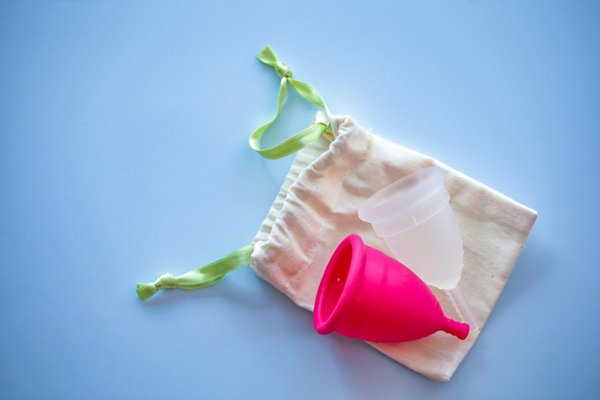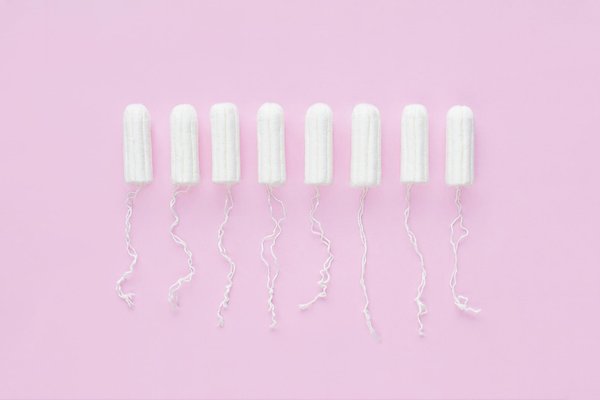It's that time of the month again. You know the drill: Cravings. Aches and pains. Mood swings. Laziness. And your favorite jeans just won't button—again. You know they fit last week. Yes, it is possible and totally normal to put on a few extra pounds this time of the month.
And this phenomenon isn't just happening to you—we promise!
Sure, the scale may read a bit higher, but you're not permanently putting on this weight. Your weight is just fluctuating a few days before your period thanks to the spike in hormones like estrogen and progesterone.
Some water retention is happening because of these hormonal fluctuations. What's also making your body retain water are the sugar, caffeine and salt that you're soothing yourself with. (Yes, you may snack on junk food and skip the gym this time of the month. But you'd have to eat a lot of junk food to really gain weight so quickly.) Read more about mistakes you're making during your period.
Weight gain may be caused by irregular bowel movements. Progesterone can make you a bit constipated, and that may cause you to feel bloated or heavier.
This weight gain can even be a mental thing. Maybe you haven't officially packed on any pounds. But you feel like you look bigger when you step in front in the mirror. It's just a feeling you have inside.
As days pass, you start to experience fewer side effects. And you aren't as bloated. Those beloved jeans fit once again.
Every woman and every cycle is different. Birth control pills, fertility drugs or hormone prescriptions can intensify things. Monitor how your body reacts to discover what's normal for you. You may want to track your symptoms and weight with an app or calendar. That way, you'll know when to expect your weight gain. Still, do your best not to focus on the numbers. Weight fluctuations are normal and common.
Consider watching your consumption of caffeine, sugar, caffeine, alcohol, salt and fatty foods during this time. Here are some signs you may be eating too much sugar or salt. This fare triggers your body to hold onto water. It is possible that you will be mindful of your diet and still gain weight. Whatever you do, don't stop guzzling water. Cutting it out won't solve water retention issues.
And as much as you may not want to do so, exercise. It can combat these side effects. Sweating helps take off extra water weight. Plus, the boost in feel-good endorphins you get from exercise can ease cramps. Find out about natural ways to relieve period pain.
Remember that you're not alone. Don't get upset or freak out if you put on a few extra pounds during your period. Most likely, that weight gain will go away after a few days, and your body will return to its good old self (assuming you're not drowning your sorrows in boxes of pizza and cartons of ice cream).
The best thing you can do this time of the month? Step off and away from the scale. And wear clothing that makes you feel like a million bucks.
If your weight issues are bothering you, speak with your health care provider.







